- Home
- Scott Mariani
The Moscow Cipher
The Moscow Cipher Read online
SCOTT MARIANI
The Moscow Cipher
Copyright
Published by Avon an imprint of
HarperCollins Publishers
1 London Bridge Street,
London SE1 9GF
www.harpercollins.co.uk
First published in Great Britain by HarperCollins Publishers 2018
Copyright © Scott Mariani 2018
Cover photographs © Getty Images
Cover photographs © Arcangel
Cover design © Henry Steadman 2018
Scott Mariani asserts the moral right to be identified as the author of this work.
A catalogue copy of this book is available from the British Library.
This novel is entirely a work of fiction. The names, characters and incidents portrayed in it are the work of the author’s imagination. Any resemblance to actual persons, living or dead, events or localities is entirely coincidental.
All rights reserved under International and Pan-American Copyright Conventions. By payment of the required fees, you have been granted the non-exclusive, non-transferable right to access and read the text of this e-book on screen. No part of this text may be reproduced, transmitted, down-loaded, decompiled, reverse engineered, or stored in or introduced into any information storage and retrieval system, in any form or by any means, whether electronic or mechanical, now known or hereinafter invented, without the express written permission of HarperCollins.
Source ISBN: 9780007486250
Ebook Edition © May 2018 ISBN: 9780007486434
Version 2018-04-04
Join the army of fans who LOVE Scott Mariani’s Ben Hope series …
‘Deadly conspiracies, bone-crunching action and a tormented hero with a heart … Scott Mariani packs a real punch’
Andy McDermott, bestselling author of The Revelation Code
‘Slick, serpentine, sharp, and very very entertaining. If you’ve got a pulse, you’ll love Scott Mariani; if you haven’t, then maybe you crossed Ben Hope’
Simon Toyne, bestselling author of the Sanctus series
‘Scott Mariani’s latest page-turning rollercoaster of a thriller takes the sort of conspiracy theory that made Dan Brown’s The Da Vinci Code an international hit, and gives it an injection of steroids … [Mariani] is a master of edge-of-the-seat suspense. A genuinely gripping thriller that holds the attention of its readers from the first page to the last’
Shots Magazine
‘You know you are rooting for the guy when he does something so cool you do a mental fist punch in the air and have to bite the inside of your mouth not to shout out “YES!” in case you get arrested on the train. Awesome thrilling stuff’
My Favourite Books
‘If you like Dan Brown you will like all of Scott Mariani’s work – but you will like it better. This guy knows exactly how to bait his hook, cast his line and reel you in, nice and slow. The heart-stopping pace and clever, cunning, joyfully serpentine tale will have you frantic to reach the end, but reluctant to finish such a blindingly good read’
The Bookbag
‘[ The Cassandra Sanction] is a wonderful action-loaded thriller with a witty and lovely lead in Ben Hope … I am well and truly hooked!’
Northern Crime Reviews
‘Mariani is tipped for the top’
The Bookseller
‘Authentic settings, non-stop action, backstabbing villains and rough justice – this book delivers. It’s a romp of a read, each page like a tasty treat. Enjoy!’
Steve Berry, New York Times bestselling author
‘I love the adrenalin rush that you get when reading a Ben Hope story … The Martyr’s Curse is an action-packed read, relentless in its pace. Scott Mariani goes from strength to strength!’
Book Addict Shaun
‘Scott Mariani seems to be like a fine red wine that gets better with maturity!’
Bestselling Crime Thrillers.com
‘Mariani’s novels have consistently delivered on fast-paced action and The Armada Legacy is no different. Short chapters and never-ending twists mean that you can’t put the book down, and the high stakes of the plot make it as brilliant to read as all the previous novels in the series’
Female First
‘Scott Mariani is an awesome writer’
Chris Kuzneski, bestselling author of The Hunters
‘I want a new invincible human being, insensitive to pain, resistant and indifferent about the quality of food they eat.’
Joseph Stalin, 1925
‘One may imagine that a man can create a man, not only theoretically but practically … a man who can fight without fear, compassion or pain. What I have just described might be worse than a nuclear bomb.’
Vladimir Putin, 92 years later
‘A man does not have the right to develop his own mind. We must electrically control the brain. Some day armies and generals will be controlled by electric stimulation of the brain.’
José Delgado, neuroscientist and pioneer of
Intracranial Radio Stimulation, paper presented to
US Congressional hearings on the Central
Intelligence Agency’s MK-ULTRA mind control
program, 1975
Table of Contents
Cover
Title Page
Copyright
Praise
Epigraph
Prologue
Chapter 1
Chapter 2
Chapter 3
Chapter 4
Chapter 5
Chapter 6
Chapter 7
Chapter 8
Chapter 9
Chapter 10
Chapter 11
Chapter 12
Chapter 13
Chapter 14
Chapter 15
Chapter 16
Chapter 17
Chapter 18
Chapter 19
Chapter 20
Chapter 21
Chapter 22
Chapter 23
Chapter 24
Chapter 25
Chapter 26
Chapter 27
Chapter 28
Chapter 29
Chapter 30
Chapter 31
Chapter 32
Chapter 33
Chapter 34
Chapter 35
Chapter 36
Chapter 37
Chapter 38
Chapter 39
Chapter 40
Chapter 41
Chapter 42
Chapter 43
Chapter 44
Chapter 45
Chapter 46
Chapter 47
Chapter 48
Chapter 49
Chapter 50
Chapter 51
Chapter 52
Chapter 53
Chapter 54
Chapter 55
Chapter 56
Chapter 57
Chapter 58
Chapter 59
Chapter 60
Keep Reading…
About the Author
By the Same Author:
About the Publisher
PROLOGUE
The city was Moscow and the date was February 10th 1957. It was to be the last night in Leo Ingram’s life, although he didn’t yet know it.
The bitter cold day was turning to a frigid evening as the deserted streets darkened, urging Ingram to turn up the collar of his heavy greatcoat and walk faster along the slippery pavement. His shoes were sodden from trudging through the dirty slush. The whistling wind carried flurries of snow that threatened to re-cover everything in white.
Ingram detested the unrelenting cold, as he detested the palpable fear and oppression that gripped this city. He could see it in the eyes of the people ev
erywhere he went; could almost feel it oozing from the grey, dirty, ice-rimed streets themselves; and the same fear was pulsing deep inside his own heart that night as he carried out his mission.
Leo Ingram was his real name, as opposed to the identity shown on the forged papers he was carrying. His spoken and written Russian were easily good enough to pass for a native, as long as he didn’t get into protracted conversation with any of the locals, something he had studiously avoided since being smuggled into the USSR five weeks earlier. His cover had been carefully set up. For the last five weeks, as far as anyone was concerned, he had been Pyotr Kozlov, self-employed piano tuner. Had he been required to actually tune a piano as proof of his false identity, he could have done so, as that had been his profession before the war.
Quite how a mild-mannered, cultivated and peace-loving gentleman like Leonard Ingram could be transformed into a highly decorated British Army captain and then, post-1945, into a special agent of the Secret Intelligence Service: that was a testament to the deep, dark impact that terrible war had had on the lives of everyone it had touched.
Ingram’s mission in Moscow was nearly complete. He had been planted here to play a relatively brief role, but one that was key to the success of the operation. If all went well tonight, the five weeks of perpetual nail-biting tension, of constantly looking over his shoulder, half-expecting to see the KGB thugs coming for him at any moment, would be over and he would begin the journey home. Not that getting out of the Soviet Union would be an easy matter.
If all didn’t go well … Ingram closed his mind to that dreadful possibility.
The package thrust deep inside one pocket of his greatcoat was the first thing his plan required him to offload that night, before moving to the second phase. The package was innocuous enough at first glance, just an ordinary tobacco tin imprinted with Cyrillic lettering, identical to millions of others carried by millions of men across the USSR. But what that little round tin contained could not have been more explosive if it had been packed full of super-concentrated TNT. If they caught him with it, all was lost. Not just his own life, but all the efforts and risks taken by others in order to obtain the extremely precious and hard-won information inside.
As Ingram rounded an icy corner of the dark, empty street and a fresh blast of bone-chilling wind slapped him in the face and made his eyes water, the warehouses came into view. A mile’s walk from his rented digs, this industrialised zone of the city was even more dismal and rundown than the rest of Moscow. Most of the ancient pre-revolutionary buildings were semi-derelict and abandoned behind rickety fences nobody guarded. All the same, he was cautious. The failing bulb of a street light flickered on, off, on, off, throwing long shadows that he watched carefully in case they might conceal enemies with guns.
Satisfied he was alone, Ingram approached the fence and made his way along the snow-rimed wire mesh to the hole, large enough for a man of his slender build to slip through easily, he’d cut three nights earlier.
The warehouse was an old meat packing plant that hadn’t been used for many years, its doors rotted off their hinges. Ingram stepped over the half-eaten body of a frozen rat and moved into the darkness of the building. The hiding place was very specific. The package would remain there only a day or so before, if all went according to plan, his contact would collect it. It had been decided back at the start of the mission that a dead drop of this sort was a safer, more prudent way for the package to change hands. Ingram would have preferred to deliver it straight to his contact, but these were not his decisions to make.
The package carefully hidden, Ingram slipped unseen from the warehouse and continued on his way through the cold darkness. Phase two of the plan was the rendezvous with his colleague, a man he had never met and would never meet again after tonight. A small waterproof envelope in Ingram’s pocket contained a slip of paper on which were written four lines of code: an enciphered message that, among other information, gave precise directions to the location of the hidden package. Once the envelope was passed on, Ingram would walk away relieved of a tremendous burden. His part in the mission would effectively be complete as his contact decoded the directions using a special key known only to a select few, then retrieved the package and whisked it away to East Berlin, where others in their organisation would be anxiously waiting to take possession.
When the package finally reached the safety of London and its contents were analysed, it would cause a sensation. Careers would be made out of this, though the men and women who’d risked their lives to obtain the information would likely get little credit.
Ingram walked on through the half-deserted streets, checking his wristwatch and his bearings and glancing behind him now and then to ensure he wasn’t being followed. A police car hissed by, tyres churning brown slush on the road, and made his heart race for a moment before it passed on into the night without so much as slowing down to check him out.
His anxiety was peaking as he walked on. His meeting with his contact, however brief, would be the moment of maximum danger for both of them; when they would be at their most vulnerable if either of them had fallen under suspicion. To be caught together was their worst nightmare. ‘It’s almost over,’ he kept telling himself. ‘You’ll soon be home free.’
As Ingram crossed a sidestreet, a large figure of a man in a long coat and a brimmed hat appeared from nowhere and stepped towards him. ‘Good evening,’ the man said in accented English. He was smiling. His right hand was in his pocket, clutching a hidden weapon. And he was most certainly not the man Ingram was supposed to meet.
KGB. The acronym stood for Komitet Gosudarstvennoy Bezopasnosti, the Committee for State Security. A name that struck terror into the hearts of those who opposed the Soviet regime, as well as the Russian citizens it oppressed as virtual captives in their own homeland. The KGB had been created only three years earlier and already forged a fearsome reputation as a direct descendant of the dreaded Cheka secret police of the olden days. Its agents were as ruthless as they were efficient.
Ingram’s stomach twisted as he realised they were onto him. He bolted diagonally away across the icy street, then skidded and almost fell as a second figure appeared around the corner up ahead, cutting off his escape. The second agent wasn’t smiling and he had drawn his service automatic.
Had someone betrayed him? Had the KGB already caught his contact and made him talk? Had a mole inside his own agency given him away? Ingram didn’t have time to ask those questions as he sprinted off in the opposite direction with the two agents in pursuit.
A shot cracked out. Splinters of brickwork stung Ingram’s leg as he darted around a corner. He knew that the KGB would shoot to wound, not to kill. He also knew what kind of horrific tortures they would use to force information from him. He would give them nothing. He and his fellow agents had all been sternly lectured on the risks associated with getting caught. Like his colleagues, Ingram carried hidden in the heel of one shoe a small glass vial containing a cyanide pill, to be swallowed in the event of imminent capture. The death it offered was by no means a pleasant one – but it was, he had been assured, far quicker and kinder than the treatment a spy would receive at the hands of his or her captors.
He sprinted along a cobbled alleyway, vaulted a railing and almost broke his neck hurtling down a long flight of icy steps. A sharp right turn, then a left, then another right; and now Ingram was quite lost in the maze of dark narrow streets, but all that mattered was getting away from his pursuers. Escape was his only hope. Ingram had killed over a dozen enemy soldiers in the war and was quite proficient at armed combat, but the Secret Intelligence Service didn’t issue weapons to undercover agents posing as innocent piano tuners. The couple of tuning forks he carried about with him wouldn’t be much use.
He paused, heart pounding in his throat, breath rasping. Listened, hard, but could hear nothing. Had he lost them? Maybe, but he could afford to make no assumptions.
The cipher in his pocket. It must not be found. He snatched
out the envelope and looked desperately around him for a hiding place to which, if he made it out of this, he could always return later. The buildings either side of the narrow street were old grey stone, slowly crumbling with decay and neglect. He ran his fingers along the rough, cold masonry, found a crack big enough, and stuffed the envelope inside it and poked it in deep with his fingers. Then he ran on, careering over the slippery pavement.
For a few elated moments longer he thought he’d given them the slip. That was when he heard the rapid thud of footsteps closing in behind him and in front, and realised they had him cornered.
He was done. Ingram felt the strange calmness that can sometimes come over a man when he knows, and accepts, that the end is here. He reached down and slid the false heel off his left shoe, trying to get to the cyanide pill inside before the enemy grabbed him; but his hands were numb with cold and he fumbled with the vial and accidentally let it slip from his fingers. He dropped to his knees, groping about in the shadows for it, but it was too late. Powerful hands seized his arms and yanked him roughly to his feet.
A pistol pressed against his head. If he could have struggled fiercely enough to make them blow his brains out, he would have, but then a cosh struck him hard over the back of his skull and knocked him half senseless. The KGB men dragged Ingram down the street to a waiting car where a third agent sat impassively at the wheel, smoking a cigarette. Ingram was bundled roughly inside. The two who had caught him sat to his left and right, boxing him into the middle of the back seat. The car sped off.

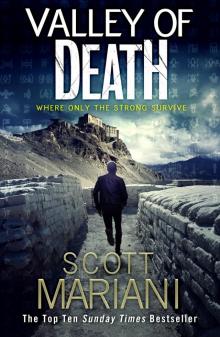 Valley of Death
Valley of Death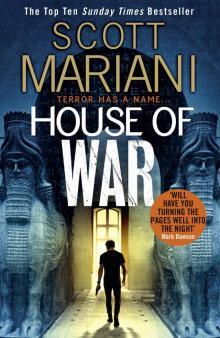 House of War
House of War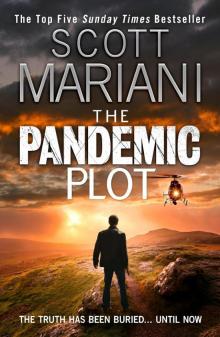 The Pandemic Plot
The Pandemic Plot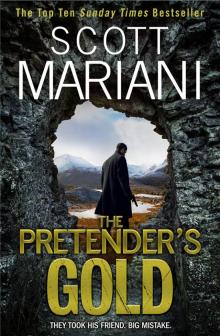 The Pretender's Gold
The Pretender's Gold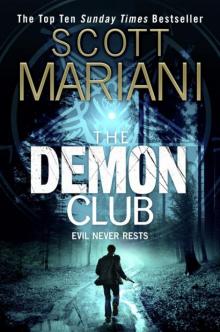 The Demon Club
The Demon Club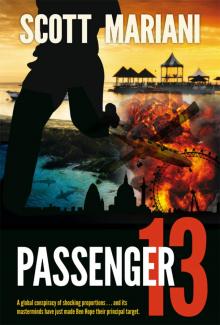 Passenger 13 (Ben Hope eBook originals)
Passenger 13 (Ben Hope eBook originals)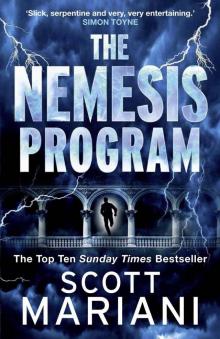 The Nemesis Program_Ben Hope
The Nemesis Program_Ben Hope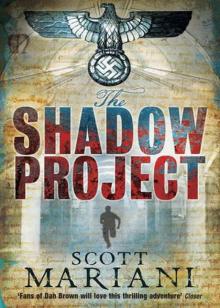 The Shadow Project
The Shadow Project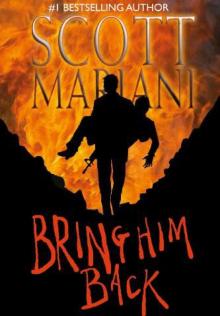 Bring Him Back
Bring Him Back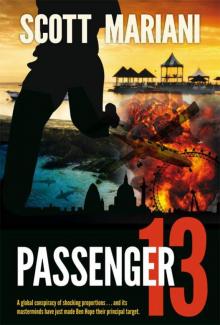 Passenger 13
Passenger 13 Sacred Sword (Ben Hope 7)
Sacred Sword (Ben Hope 7)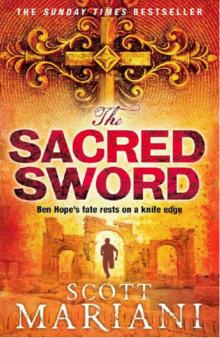 The Sacred Sword (Ben Hope 7)
The Sacred Sword (Ben Hope 7)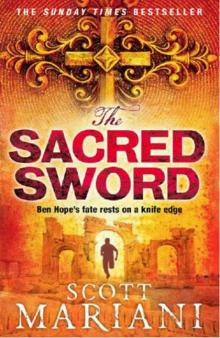 Sacred Sword
Sacred Sword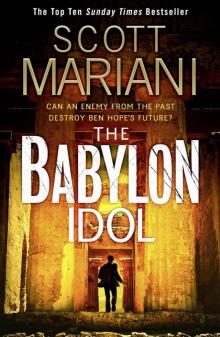 The Babylon Idol
The Babylon Idol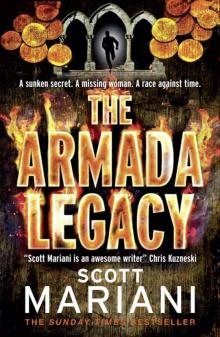 The Armada Legacy
The Armada Legacy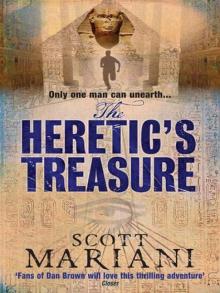 The Heretic's Treasure
The Heretic's Treasure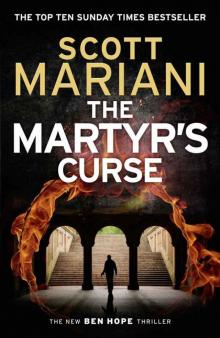 The Martyr’s Curse
The Martyr’s Curse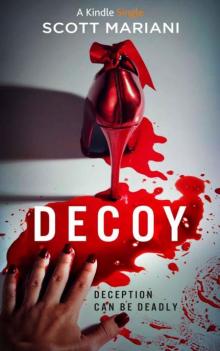 DECOY (Kindle Single)
DECOY (Kindle Single)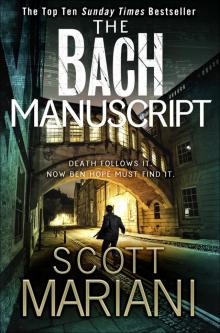 The Bach Manuscript
The Bach Manuscript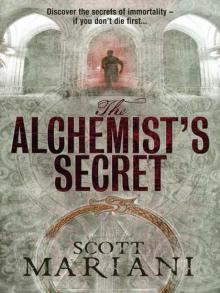 The Alchemist's Secret
The Alchemist's Secret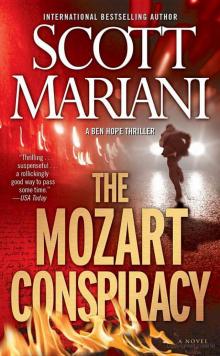 The Mozart Conspiracy: A Novel bh-2
The Mozart Conspiracy: A Novel bh-2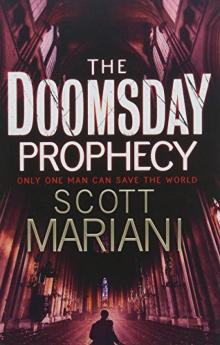 The Doomsday Prophecy
The Doomsday Prophecy The Ben Hope Collection: 6 BOOK SET
The Ben Hope Collection: 6 BOOK SET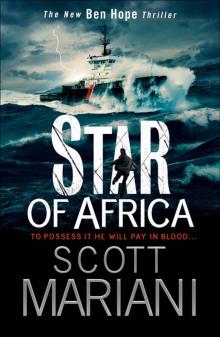 Star of Africa (Ben Hope, Book 13)
Star of Africa (Ben Hope, Book 13)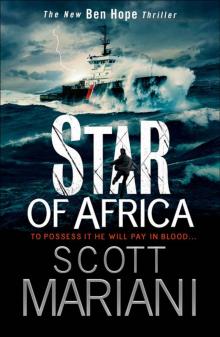 Star of Africa
Star of Africa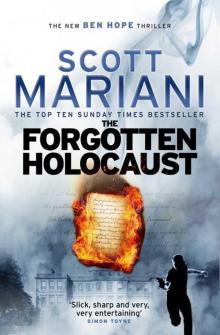 The Forgotten Holocaust (Ben Hope, Book 10)
The Forgotten Holocaust (Ben Hope, Book 10)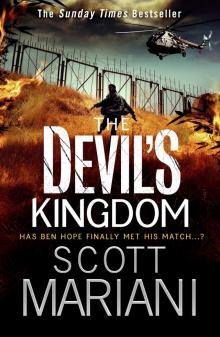 The Devil's Kingdom
The Devil's Kingdom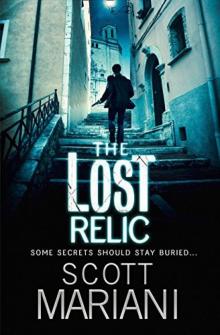 The Lost Relic
The Lost Relic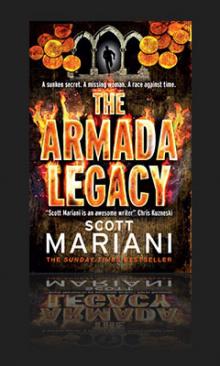 The Armada Legacy bh-8
The Armada Legacy bh-8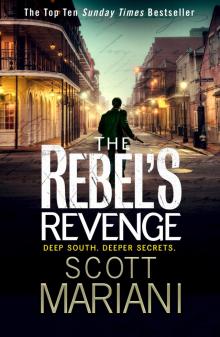 The Rebel's Revenge
The Rebel's Revenge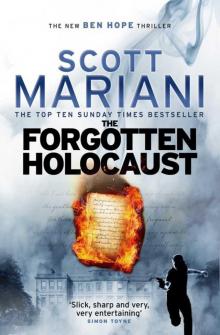 The Forgotten Holocaust
The Forgotten Holocaust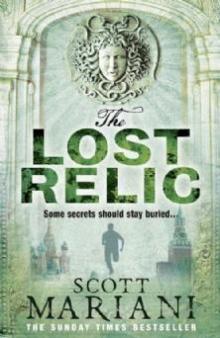 The Lost Relic bh-6
The Lost Relic bh-6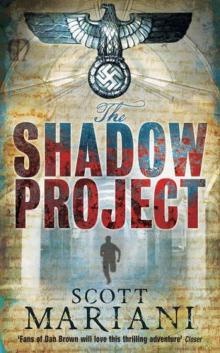 Ben Hope 05 - The Shadow Project
Ben Hope 05 - The Shadow Project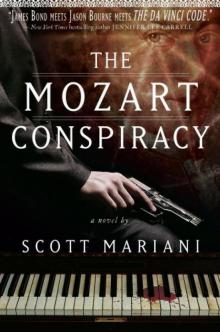 The Mozart Conspiracy
The Mozart Conspiracy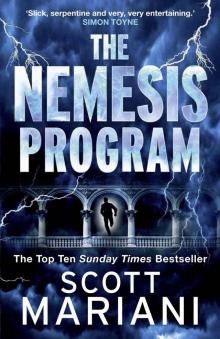 The Nemesis Program
The Nemesis Program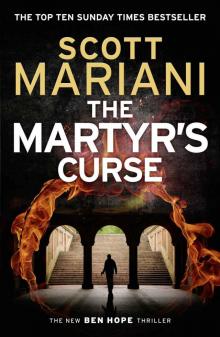 The Martyr’s Curse (Ben Hope, Book 11)
The Martyr’s Curse (Ben Hope, Book 11)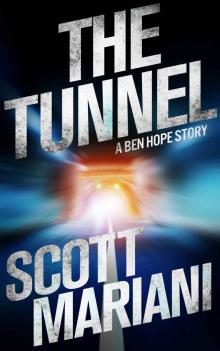 THE TUNNEL: A Ben Hope Story
THE TUNNEL: A Ben Hope Story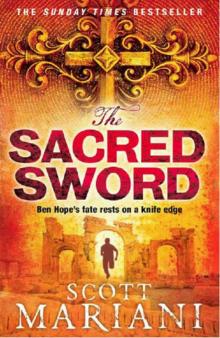 The Sacred Sword bh-7
The Sacred Sword bh-7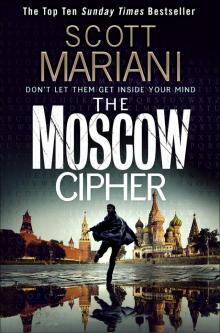 The Moscow Cipher
The Moscow Cipher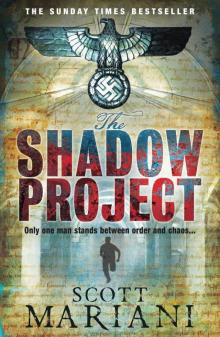 The Shadow Project bh-5
The Shadow Project bh-5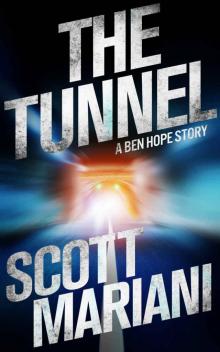 The Tunnel
The Tunnel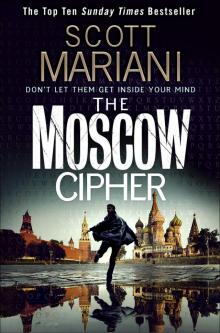 The Moscow Cipher (Ben Hope, Book 17)
The Moscow Cipher (Ben Hope, Book 17)